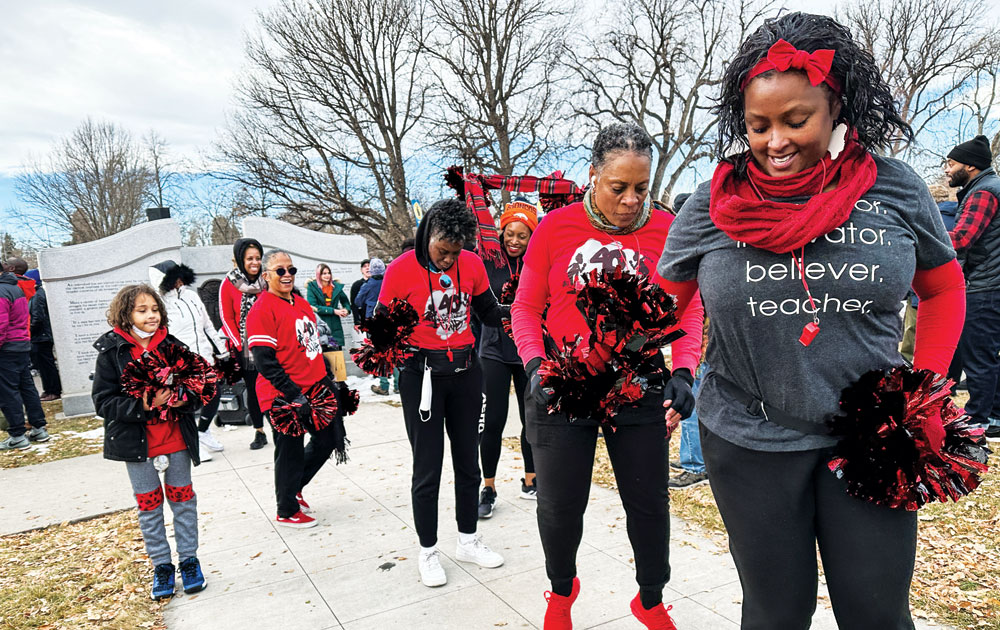
Members of the 40+ Double Dutch Club practice their moves in City Park before the annual Martin Luther King Jr. Day Marade begins. The organization, which has chapters in 30 states and three countries, is designed to empower women over 40 through mental and physical fitness, friendship, fun, and fellowship.
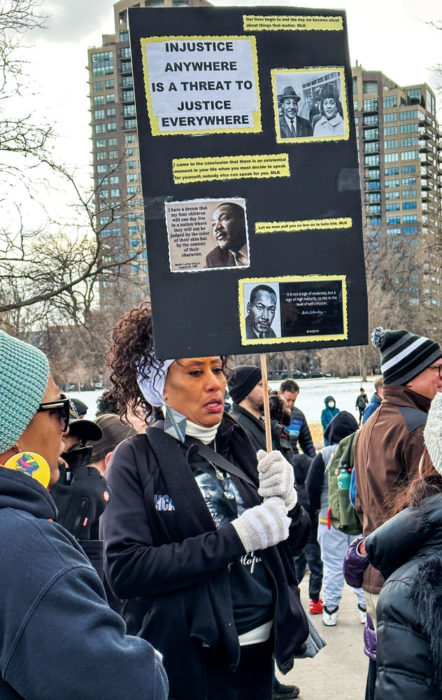
Scenes from the Martin Luther King Jr. Marade, held this year on January 16. Some activists held signs honoring Dr. King while others called for solutions to problems of inequity. Stephanie Hancock (lower right photo) sang “Lift Every Voice” to kick off the festivities in front of the MLK statue in City Park. Former Mayor Wellington Webb, Gov. Jared Polis, and Sen. John Hickenlooper spoke before the crowd marched to Civic Center Park where the entertainment and celebrations continued.
Terri Gentry is a fourth generation Denverite who has been attending Denver’s Martin Luther King Jr. Marade since its inception in 1986. “It’s always been an event about unity and coming together, with people from all walks of life. Young people, old people, families pushing strollers. Blacks, whites, Latinos, Jews, Christians, Muslims.”
Gentry, who serves as the engagement manager for Black communities at the History Colorado Center, says the marade was created by former State Representative Wilma Webb, who along with her husband, former Mayor Wellington Webb, spent over a decade in the 1970s and 80s advocating that Colorado designate a state holiday to honor the slain civil rights leader.
After that designation was signed into law, Webb led a commission—with input from Coretta Scott King—about how to properly celebrate MLK Day. Both the state and federal MLK holiday were to be inaugurated on the third Monday of January in 1986.
Wilma Webb decided the best way to honor the civil rights leader was with an event she called a marade. “A parade is a celebration of good things that have happened and a march is to stand up and make change,” says Gentry. “So we celebrate accomplishments but also recognize the things we have yet to achieve. And we do so in a peaceful manner, just like Dr. King wanted us to.”
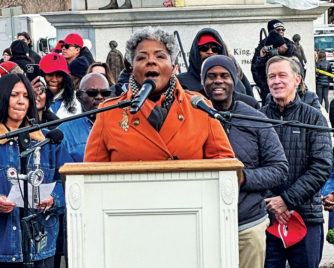 Over the years, Denver’s marade has grown from 15,000 participants to 60,000 this past January. Other cities have also started marades, but Denver’s remains the largest and Gentry predicts it will continue to grow. “A marade is about human rights, civil rights, and equity. And those are issues that aren’t going to go away.”
Over the years, Denver’s marade has grown from 15,000 participants to 60,000 this past January. Other cities have also started marades, but Denver’s remains the largest and Gentry predicts it will continue to grow. “A marade is about human rights, civil rights, and equity. And those are issues that aren’t going to go away.”
Front Porch photos by Christie Gosch
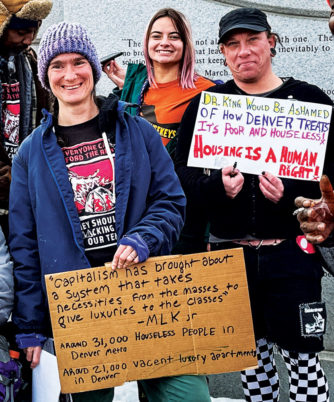
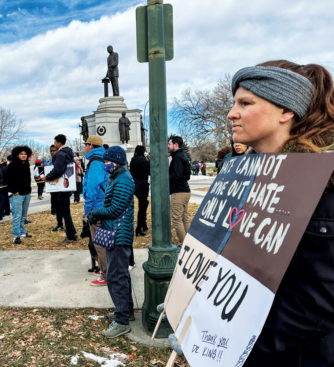



0 Comments